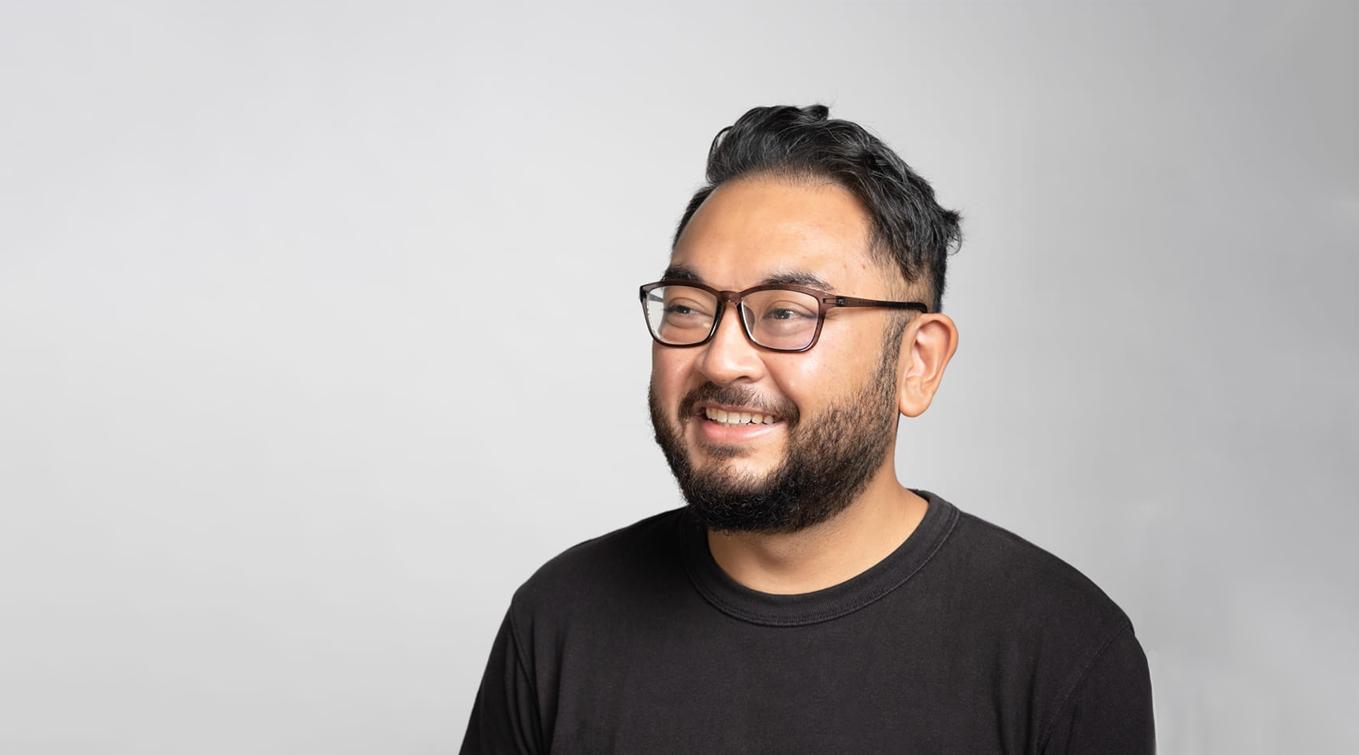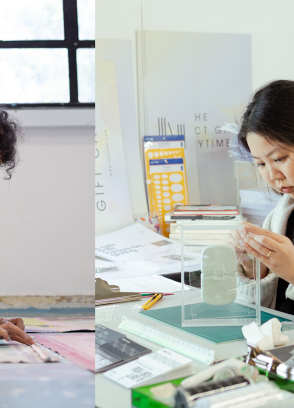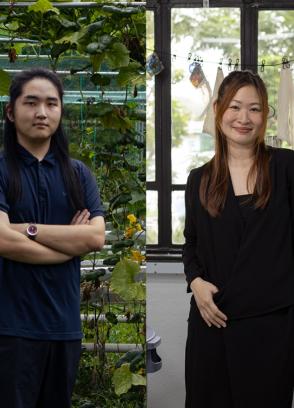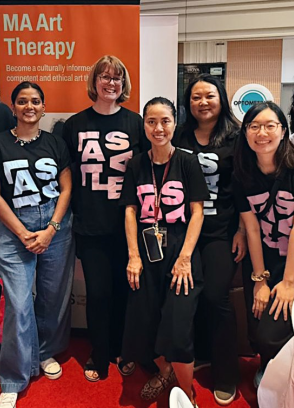Whether it’s curating socially-engaged work on what it means to live and die well for the Malay-Muslim community, or directing a children’s play that guides its young audiences towards seeing things from different perspectives, much of LASALLE MA Arts Pedagogy and Practice student and NAC Arts Scholarship recipient Adib Kosnan’s body of work is centred around the notion that the theatre is a “rehearsal for life”.
The quote stuck with Adib after being frequently cited by his mentor Kok Heng Leun, Cultural Medallion winner and former Nominated Member of Parliament for the arts. “Heng Leun often shared the quote in his forum theatre rehearsals and workshops,” recounts Adib. “It highlights that the theatre and the work that we do has the ability to impact our real lives through the conversations and interactions with human issues and other individuals.”
The theatre practitioner, therefore, has the ability to shape the way audiences think and live. “It places responsibility on us to take our roles seriously as creators and collaborators,” explains Adib. “Very often, a work is not just a show, it's a part of life.”
Seeking to deepen his practice as a teaching artist who blends artistic and pedagogical practices in his work, Adib found that LASALLE’s MA Arts Pedagogy and Practice programme was a natural fit, given its focus on producing artist-teacher-researchers who can use their practice to ask big questions, change thinking and shape culture.
Adib shares more about how a teaching artist’s responsibility starts in the rehearsal space, best practices he’s picked up as well as the confidence he’s gotten as an educator from his time in the MA Arts Pedagogy and Practice programme.
Why did you choose LASALLE's MA Arts Pedagogy and Practice programme?
I chose it because of the unique opportunity to learn from and with other fellow teaching artists from different art forms and disciplines. I also wanted an opportunity to think about my craft deeply from an educator's perspective and gain more knowledge to further develop this aspect of my practice.
I expected it to be a robust sharing of thoughts, resources and experiences while focusing on the theoretical aspects of education. So far it has definitely lived up to these expectations and I'm especially enjoying interacting with my fellow classmates.
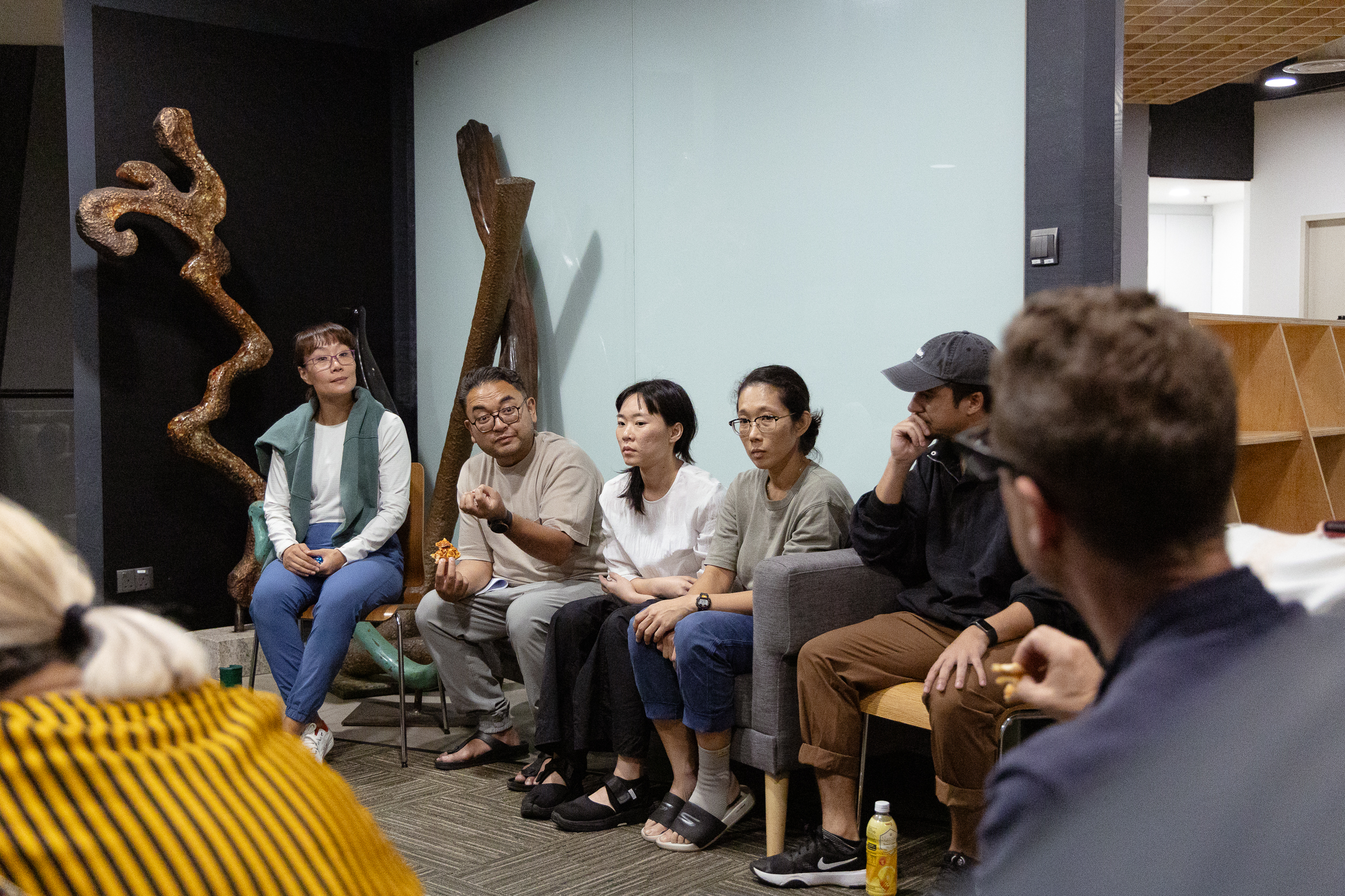 Adib (second from left) with MA Arts Pedagogy and Practice classmates.
Adib (second from left) with MA Arts Pedagogy and Practice classmates.
The MA attracts a diverse range of artist-educators with different backgrounds and practices. Has this diversity led to any unexpected opportunities for discovery?
It has led me to have a deeper appreciation of different art forms. I see first-hand how much thought is given by different artists in teaching their discipline. Through the sharing of their interactive prompts and activities from their own discipline, I’ve become more confident in trying to incorporate different elements into my classes and my work to get people to think about things from different perspectives.
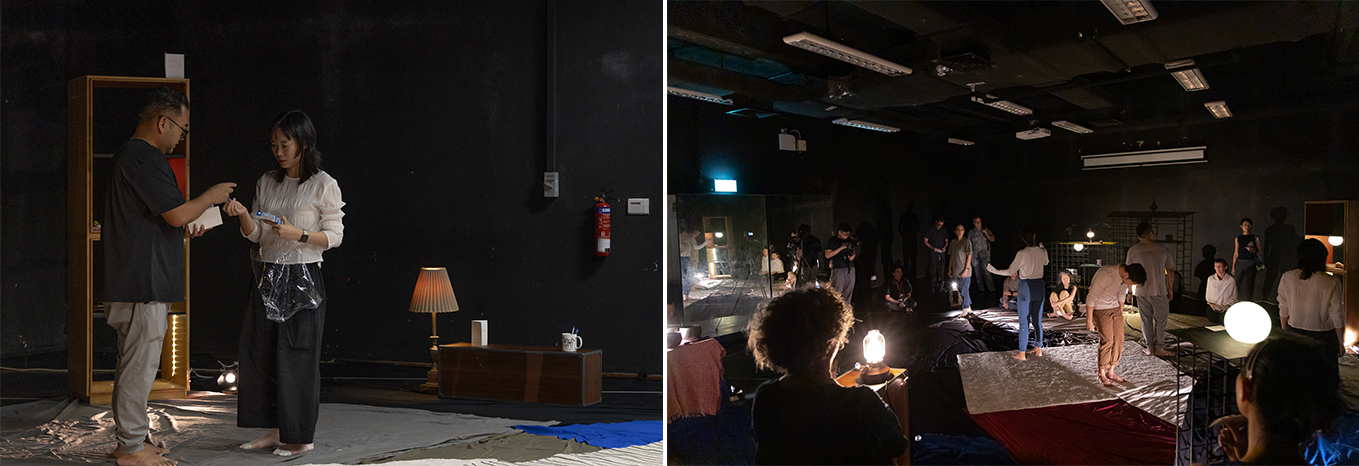 (Left) Adib setting up the space with an MA Arts Pedagogy and Practice classmate in preparation for a showcase in November 2023. (Right) A scene from the showcase.
(Left) Adib setting up the space with an MA Arts Pedagogy and Practice classmate in preparation for a showcase in November 2023. (Right) A scene from the showcase.
What are some of the best practices that you’ve observed in teaching artists you admire?
Heng Leun is someone who I feel balances teaching concepts and creating a creative space for collaborators to explore safely. I have learned a lot about organising the classroom from him. Jean Ng is another teaching artist who I admire as she asks tough questions in the classroom but guides students in discovering answers in a gentle yet firm manner.
I believe that it’s important to try to understand the different challenges and perspectives students might have even before entering the classroom, which would allow for a deeper connection and engagement with them. The two teaching artists that I've mentioned definitely exhibit these traits and I learn a lot when I interact with them.
In the projects that I've been involved in, I try to apply these lessons through learning from each experience and making adjustments in my practice so that possible missteps are avoided. There’s also a desire to ensure that the rehearsal space that I create is a safe one, for these interactions to occur in the most positive way possible.
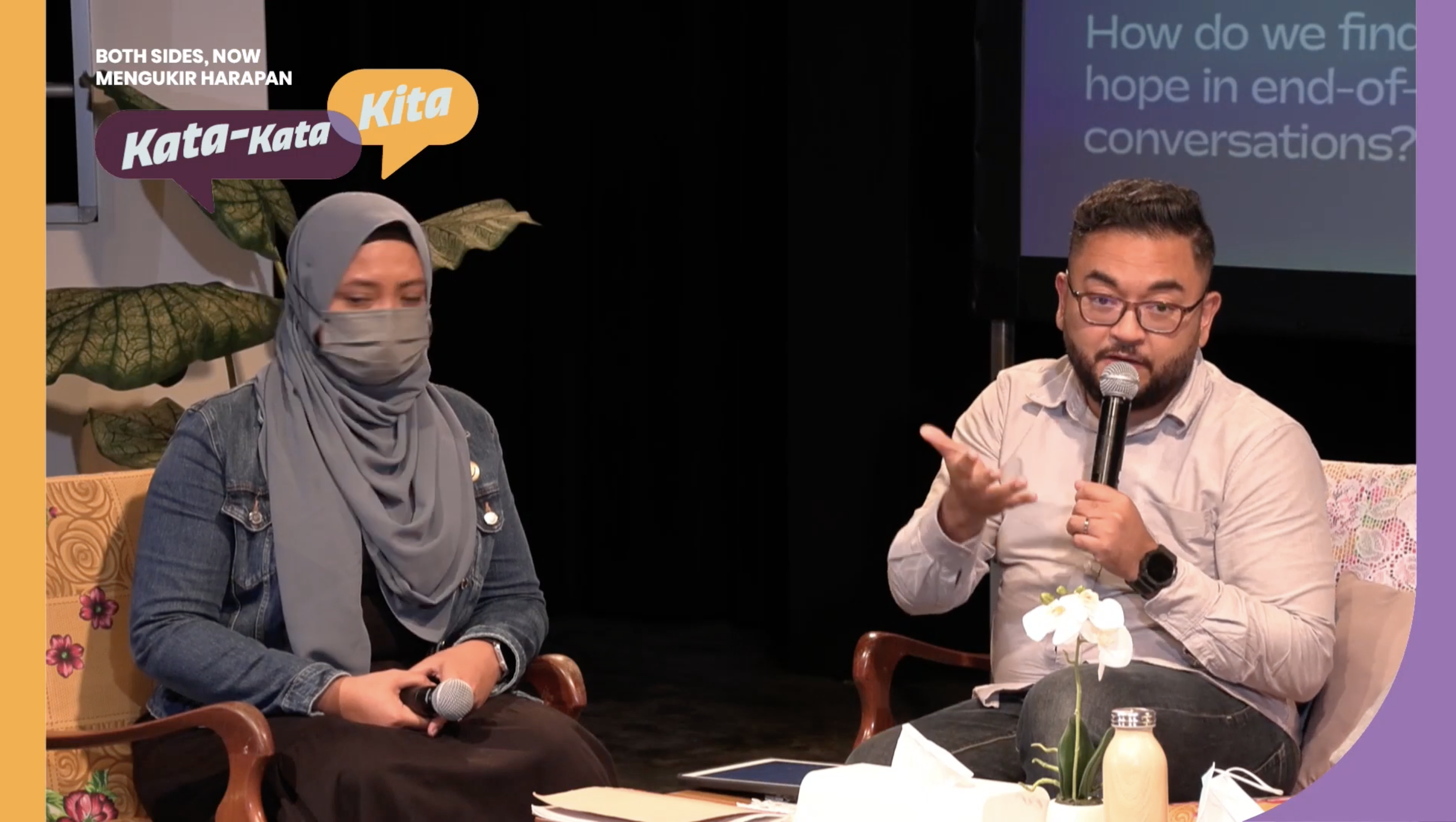 Adib moderating a panel on legal matters in end of life planning as part of Both Sides Now.
Adib moderating a panel on legal matters in end of life planning as part of Both Sides Now.
What do you think gives theatre that potency as a medium for conversation?
Theatre is definitely a possible medium but a lot of thought has to be put into the structure and production of a show to ensure that it becomes a meaningful exchange rather than a performance that merely entertains but does not provoke much thought or conversations around it.
I think understanding the cultural challenges of the community is something essential but also difficult to do. In my work with Both Sides Now, which focused on the Malay-Muslim community in its last edition, I realised that since I am also a part of the community, I might not actually be able to approach it from different points of view. I learnt a lot about the different ways we have to engage with the community in order to talk about difficult issues.
It’s difficult but important work, as stories that succeed in making a community feel seen and heard, especially on topics that are not often talked about, have a powerful potential to begin a conversation.
What are your plans for the future when you graduate?
I hope to continue developing programmes that can bring my expertise in theatre to a broader group of people who want to learn more. My time on the programme has made me more assured of my desire to teach and share what I have learnt. It's also made me more aware of my strengths as an educator and an artist, and where these strengths might serve me better.
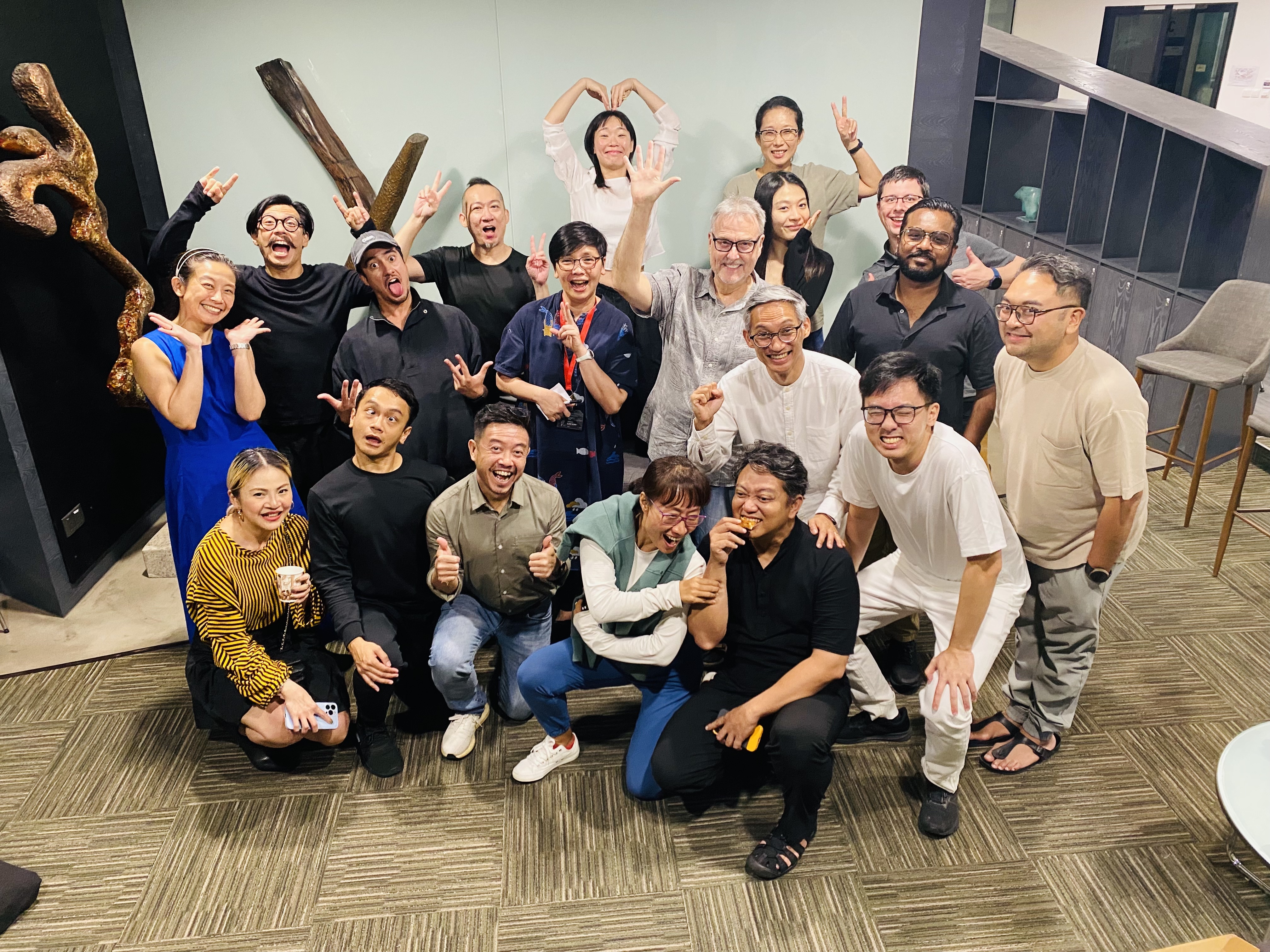 Adib (extreme right) with MA Arts Pedagogy and Practice classmates, as well as LASALLE lecturers.
Adib (extreme right) with MA Arts Pedagogy and Practice classmates, as well as LASALLE lecturers.
Apply now for our postgraduate programmes.

